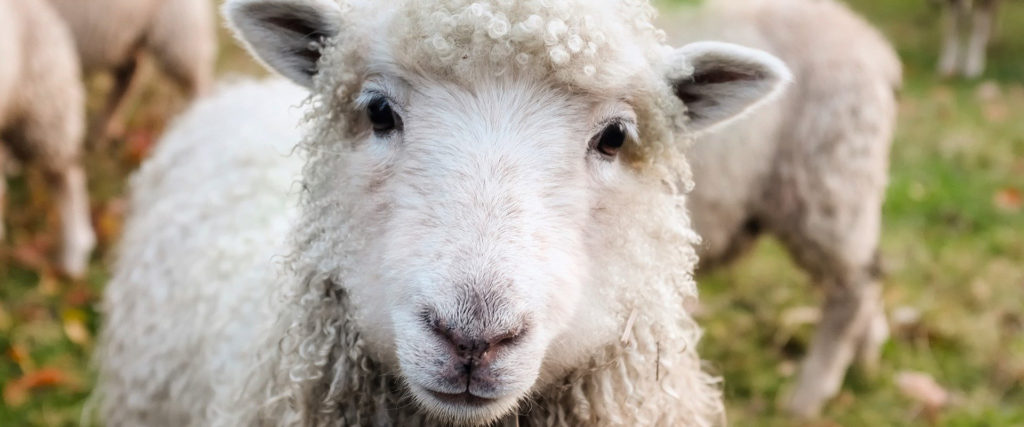Written by Aleha Pillay and Cetana Wong
“It is my view that the vegetarian manner of living, by its purely physical effect on the human temperament, would most beneficially influence the lot of mankind.”
Albert Einstein
Vegetarianism is described as having a diet that abstains from meat. While there are many diets that come under this umbrella, for the purposes of this discussion we will be referring to a vegetarian diet as one free from meat, fish, chicken, eggs, and animal derived products such as gelatin(1).
There are a number reasons that people choose vegetarianism, they include:
- Health: two main health concerns around eating meat are the presence of excess saturated fats and potential diseases that may arise from the consumption of meat
- Ethics: the ethical concerns about eating meat are related to the killing of animals and poor farming conditions
- Ecological: there are concerns around the efficiency of producing meat with regards to the land and consumable resources required to maintain livestock.
- Meditation: This derives from the yogic understanding of mind and the structure of mind. Certain products are avoided as food due to their effect on the body and mind of meditators.
But regardless of why one’s diet is meat-free, there is more than one benefit to not eating meat.
Benefits to health

It has often been said that you are what you eat.
Food can directly influence our brains and bodies by affecting the production of neurotransmitters. For example, foods high in lecithin (e.g. soybeans), are correlated with increased memory(2). As some foods can be beneficial to our bodies, others can be harmful. Regarding the consumption of meat, there are a number of health concerns, including increased risk of diseases and increased prevalence of zoonotic diseases (diseases that can be transferred from animals to humans).
Studies show links between processed meat consumption and mortality. Particularly due to cardiovascular diseases(3), cancer(3), and increased risk of heart failure(4). There was also found to be a consistent association between BMI (body mass index) and obesity in correlation to meat consumption, with obesity being an identified risk factor for coronary heart disease(5). Consumption of processed and/or red meats were found to increase the risk of ischemic stroke (caused by blood clots in the brain) as much as 13% per 100g of consumed meat(6).
In addition to concerns about the effects of eating meat on the body, there is the potential risk of harmful contaminants and additives in the meat as well. Modern factory farming is no longer about responsible stewardship and ethical farming practices, but rather about increased economic profitability at the expense of animal welfare. This increases adverse health consequences to the general population(7).
Historically, many epidemics, including measles, influenza and smallpox, originated from domesticated farm animals. SARS has been directly linked to live animal markets. Mad cow disease (Creutzfeldt-Jakob disease) is a disease that causes dementia and is contracted from eating beef infected with bovine spongiform encephalopathy. This emerged in cows after feeding them slaughterhouse waste, thus establishing a link between mistreatment of animals and the increased risk of adverse health effects(7).
The most commonly diagnosed foodborne illnesses in the US is salmonella. Due to battery farming practices, the risk of infection is significantly increased in animals. Overcrowding of farmed hens leads to an increase in pecking behaviours, which cause them to violently peck each other to death. To prevent this, the chickens are debeaked which means that they cannot eat properly and will potentially starve. As a result of the extreme stress caused by the horrific conditions, the immune systems of these hens are weakened. The Journal of Medical Microbiology, found a relationship between the increase in stress hormones in hens and the spread of salmonella as the hormones can exponentially escalate the growth rate of salmonella(7).
Benefits to animal welfare

As mentioned above, animals can suffer greatly under current farming practises, and the matter still stands that to consume meat an animal must be killed. Many religious and spiritual groups around the world advocate for a vegetarian diet, to preserve the sanctity of all life and to lead a life that does not cause needless suffering. According to this view, animals should not be viewed as a commodity, but rather being just as important as humans. If our survival does not depend on the consumption of meat, the question should be asked if meat consumption is a moral and humane habit. If we were to weep at the death of a family pet, should we not also think about the deaths of livestock similarly?(2).
This concept was explained by the great contemporary spiritual leader, P. R. Sarkar(2):
“As far as possible, articles of food are to be selected from amongst the sets of items where development of consciousness is comparatively little, ie) if vegetables are available, animals should not be slaughtered. Secondly, before killing any animal having developed or underdeveloped consciousness, consider over and over whether it is possible to live in a healthy body without taking such lives.”
Benefits to the environment

Due to increasing concerns about the environment, there are many who are turning to vegetarianism to reduce our global footprint. It was estimated that food production occupied approximately half of all vegetated land, generated almost 25% of global greenhouse gas (GHG) emissions, and accounted for 70% of global freshwater usage based on 2018 data. However, the production of plant-based foods generally has a much smaller environmental impact than meat production or fish farming. Livestock production has a two-fold environmental effect; it is estimated that it produces almost 80% of agricultural GHG emissions and negatively influences biodiversity by requiring larger areas of land, compared to the production of plant-based food. These impacts are slowly compounding, partly due to the increase in population growth, as well as an overall increase in the average food intake per person and a proportionally higher consumption of animal products(8).
Another dispute in the environmental vegetarianism debate is the amount of usable food crops that are sacrificed to raise livestock. Current estimates are that 3kg of cereals are required on average to produce 1kg of meat. This figure indicates that potential food stocks are going into the production of meat for a net loss, ie) energy put into raising livestock for food is less than the energy returned by consuming the meat(9).
Of course, it may not be possible, or entirely practical, for one to adopt a vegetarian diet depending on their circumstances. But, if it is possible then consider reducing or eliminating meat from your diet, not only for your health, but the health of the environment and our fellow animals.
We will be expanding more on each of these aspects in future articles, so stay tuned!
Works Cited
(1) Mariotti, Francois. Vegetarian and Plant-Based Diets in Health and Disease Prevention. 1. London : Academic Press, 2017.
(2) Acarya, Avadhutika Anandamitra. Food for Thought: The Vegetarian Philosophy . 7. Mumbai : Ananda Mudranalaya, 2005.
(9) International Livestock Research Institute (ILRI). FAO sets the record straight – 86% of livestock feed is inedible by humans. CGIAR.org. [Online] CGIAR, January 28, 2019. [Cited: August 19, 2020.] https://www.cgiar.org/news-events/news/fao-sets-the-record-straight-86-of-livestock-feed-is-inedible-by-humans/.

